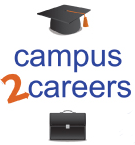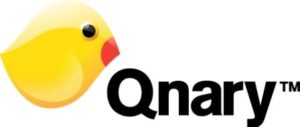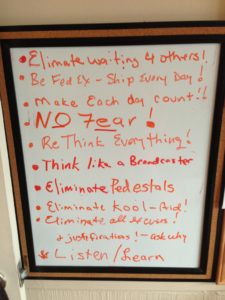 Last week, I wrote about why our digital profiles matter. The post included a futurist story that I wrote illustrating the impacts of the Hyperconnected Economy.
Last week, I wrote about why our digital profiles matter. The post included a futurist story that I wrote illustrating the impacts of the Hyperconnected Economy.
Resumes are now obsolete as recruiters and HR Departments use the Internet and social media platforms like LinkedIn to find qualified and talented candidates. The Internet is also changing how we conduct our job searches and submit profiles for employment consideration.
Creating a unique and powerful digital profile gives you the advantage of being heard above the digital clutter. Technology is now our competitor for employment not individuals in China or India.
College graduates today face one of the most complex and chaotic employment environment compared to previous generations. Placement centers are out-of- date and provide obsolete information to college seniors and graduates. I anticipate that our universities and colleges will undergo a major change similar to the music and publishing industries. The Internet is changing education; students can access online classes from elementary math to physics at Stanford.
To gain a competitive advantage in the new economy we must have a rememberable digital profile, strong tech skills and diverse professional network.
 Last month, I talked with Nathan Green, co-founder of campus2careers. We discussed his company and all the career services available for college graduates. Nathan understands the importance of having a rich digital profile. His company has created a platform that helps college students find jobs that match their goals and personality.
Last month, I talked with Nathan Green, co-founder of campus2careers. We discussed his company and all the career services available for college graduates. Nathan understands the importance of having a rich digital profile. His company has created a platform that helps college students find jobs that match their goals and personality.
Campus2careers is a community which is different from job posting boards like Monster.com and Careerbuilder.com. Instead of filtering job postings, campus2caeers matches college students and recent graduates with a wide range of businesses from startups to medium size companies. Both parties benefit from this service as many small businesses have limited resources and are now able to find qualified candidates. Students have more career opportunities.
What I like best about campus2careers is that it uses preferences and skill-based matching along with well-crafted digital profiles to match college students to employers. The algorithms used to match the students is similar to online dating.
So, how do you know if you have a good digital profile?
Social media ranking platforms such as Klout,Kredand Rebel Mouse offer very little insight on how to improve your ranking. I’m not a fan of Klout because the information and ranking appears to be arbitrary. According to Klout, I’m an influencer in roller skating and shoes. Really?
Qnary is a new company with a platform that builds upon the social media ranking sites. The platform analyzes all your profiles together and then provides a private profile score. This score is similar to a credit score. Qnary offers recommendations on how to improve your score.
 I created a Qnary account to test drive the platform. It noted several gaps in my digital profile and how these gaps can be improved. Qnary’s best feature is that it offers one stop analyzation with recommendations on how to make your online brand image better.
I created a Qnary account to test drive the platform. It noted several gaps in my digital profile and how these gaps can be improved. Qnary’s best feature is that it offers one stop analyzation with recommendations on how to make your online brand image better.
campus2careers is leading the future for helping high school and college students with career development and job placement.
Our digital profiles are important and will continue to have a greater impact on our careers. To rise above the human capital, we will need to utilize services like campus2careers and Qnary to gain an advantage in this rapidly changing economy.
For full transparency, I have a referral agreement with Qnary.



